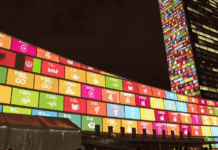Indonesia, the world’s largest nickel producer, is at the center of a global scramble for this essential metal that is leading to massive destruction of the country’s rainforests and coral reefs.
Nickel is a crucial component of electric vehicle batteries, and the demand for it has soared as the world shifts away from fossil fuels. But beneath the surface of this booming industry lies a story of environmental destruction and social upheaval that is reshaping communities and ecosystems.
In Indonesia, nickel mining has surged to unprecedented levels. The country now accounts for 15 percent of the world’s lateritic nickel resources, which are typically low-grade deposits found near the surface.
The International Energy Agency forecasts a 65 percent increase in global nickel demand by 2030, driven largely by the rise in electric vehicles. Indonesia has positioned itself as a key player in the nickel market.
This drive to harness nickel has attracted massive investments from global corporations. Over the past three years alone, Indonesia has signed over $15 billion in deals with major companies like Foxconn, Hyundai and LG to supply nickel for batteries and EV production.
This influx of capital has led to the construction of large-scale nickel smelters and processing plants, particularly the Indonesia Morowali Industrial Park in the island of Sulawesi. The new nickel smelter is a colossal facility capable of processing 13 million tons of nickel ore annually.
The transformation of Sulawesi – an island known for its stunning coral reefs and prehistoric cave paintings – into an industrial hub is a striking example of how quickly local landscapes can change under the pressure of global net zero demand.
Expansion of nickel mining harming environmental and human health
The environmental impact of nickel mining is severe. Facilities like PT Obsidian Stainless Steel in Sulawesi operate around the clock, emitting pollutants into the air. Sulfur dioxide, nitrogen oxides and coal ash – particles finer than beach sand – are among the pollutants released. (Related: “Green energy” mining is polluting rivers and farmland at an unsustainable pace, leaving 23 million people exposed to toxic waste.)
The pollution extends beyond air quality. Fishermen are facing increasingly dire conditions as nickel pollution degrades the waters they rely on. The once-rich fishing grounds are now murky, with fish stocks dwindling and fish moving away from polluted areas.
Aiwi, a 78-year-old local fisherman, described the impact. “There are no fish here anymore,” he said, adding that children in his village are suffering from respiratory problems due to the severe air pollution.
The environmental destruction caused by nickel mining is extensive. Large areas of forest are cleared to make way for mining operations and open-pit mines are dug into the earth. This deforestation destabilizes the land, making it more prone to erosion and flooding. In 2022 alone, Southeast Sulawesi experienced at least 21 floods and mudslides, significantly more than the two to three per year recorded before the mining boom began.
Rivers and streams also became contaminated with heavy metals and other pollutants, affecting both aquatic life and human health. The local population is left to deal with the fallout of these environmental impacts – facing challenges, such as damaged land and polluted water.
The nickel mining boom in Indonesia serves as a stark reminder of the trade-offs involved in the global transition to cleaner energy sources. While the shift to electric vehicles and renewable energy is said to be crucial for reducing greenhouse emissions, it is essential to address the accompanying environmental and social impacts. This includes implementing stricter environmental regulations to preserve crucial ecosystems and prevent massive pollution.
Watch this short clip of a massive gathering in Belgrade, Serbia, protesting against a lithium mining project that could cause massive environmental damage to a region in northwestern Serbia.
From heavymetals.news
Disclaimer: We at Prepare for Change (PFC) bring you information that is not offered by the mainstream news, and therefore may seem controversial. The opinions, views, statements, and/or information we present are not necessarily promoted, endorsed, espoused, or agreed to by Prepare for Change, its leadership Council, members, those who work with PFC, or those who read its content. However, they are hopefully provocative. Please use discernment! Use logical thinking, your own intuition and your own connection with Source, Spirit and Natural Laws to help you determine what is true and what is not. By sharing information and seeding dialogue, it is our goal to raise consciousness and awareness of higher truths to free us from enslavement of the matrix in this material realm.
 EN
EN FR
FR


























